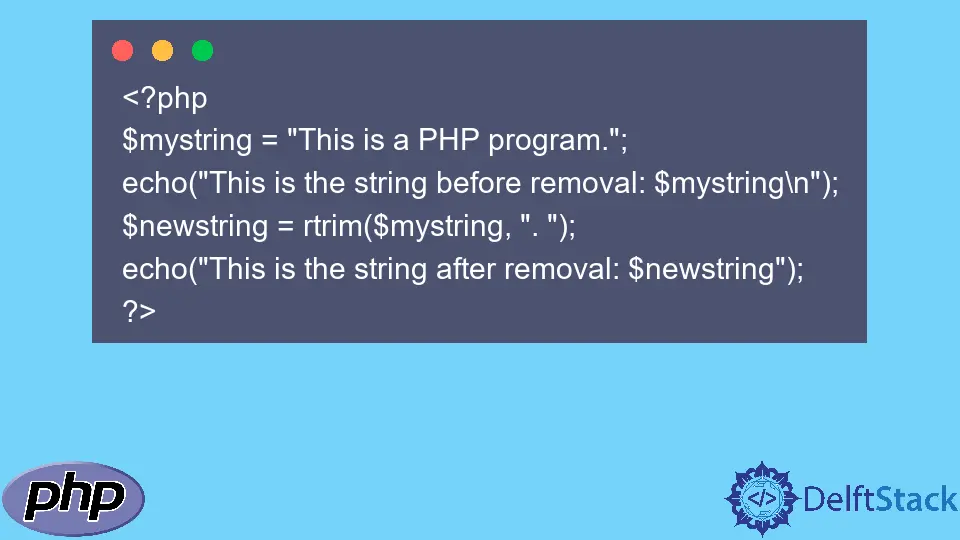如何在 PHP 中删除字符串中的最后一个字符
Minahil Noor
2023年1月30日

本文将介绍在 PHP 中使用函数 rtrim() 和 substr() 从字符串中删除最后一个字符的不同方法。
使用 rtrim() 函数来删除最后一个字符
rtrim() 函数明确用于删除字符串末尾的空格或字符。使用该函数的正确语法如下。
rtrim($string, $character);
内置函数 rtrim() 有两个参数,每个参数的细节如下。
| 参数 | 说明 | |
|---|---|---|
$string |
强制 | 这是我们要删除最后一个字符的字符串 |
$character |
可选 | 就是我们要从最后删除的字符 |
这个函数返回执行删除后得到的最终字符串。下面的程序显示了我们如何使用 rtrim() 函数从一个字符串中删除最后一个字符。
<?php
$mystring = "This is a PHP program.";
echo("This is the string before removal: $mystring\n");
$newstring = rtrim($mystring, ". ");
echo("This is the string after removal: $newstring");
?>
输出:
This is the string before removal: This is a PHP program.
This is the string after removal: This is a PHP program
使用 substr() 函数来删除最后一个字符
在 PHP 中,我们还可以使用 substr() 函数来删除字符串中的最后一个字符。这个命令返回一个指定的子字符串,正确的执行语法如下。
substr($string, $start, $length)
函数 substr() 接受三个参数。
| 参数 | 说明 | |
|---|---|---|
$string |
强制 | 这是我们要删除最后一个字符的字符串 |
$start |
强制 | 它是子字符串的起始位置。你可以阅读更多关于它的信息这里。 |
$length |
可选 | 如果给定值,那么函数将返回从 $start 参数到指定长度的子字符串。 |
使用 substr() 函数从字符串中删除最后一个字符的程序如下。
<?php
$mystring = "This is a PHP program.";
echo substr($mystring, 0, -1);
?>
输出:
This is a PHP program